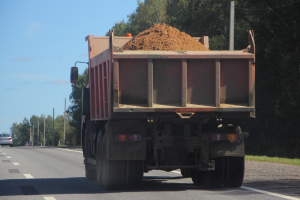
Truck accidents happen almost every day, and it is vital to know what steps to take to ensure you get compensated for your injuries. If you find yourself asking "what happens if a truck driver gets in an accident?" this blog post offers the answer to you.
The first step is to seek medical attention. It is essential not only for your health but also for documentation purposes. Be sure to keep all your medical records and bills as they will be crucial evidence in your case.
Once you have seen a doctor, contact an experienced personal injury lawyer. A lawyer can help you understand your rights and options and will fight for the compensation you deserve.
You may be entitled to compensation for your medical bills, lost wages, pain and suffering, and other damages. Don't try to navigate the legal system yourself; let a professional help you get the justice you deserve.
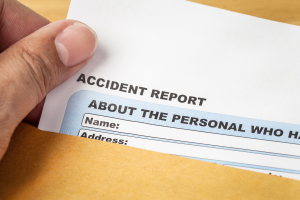
If you are a truck driver who has been in an accident, you may be wondering what the process is for filing a claim and getting compensated for your injuries. Here is a look at what you can expect:
The first step is to report the accident to your trucking company. If you are driving a commercial truck, you must have a commercial driver's license (CDL). Your trucking company, or trucking companies in general, will likely have an insurance policy covering accidents involving their trucks. A prompt report about the accident is vital because the trucking company will need to file an insurance claim and begin investigating the accident.
The next step is to gather evidence that will support your claim. It may include the police report, eyewitness accounts, photos of the accident, your truck's black box data recorder, and your medical records. Having as much evidence as possible is essential to back up your claim. In addition, these pieces of evidence will be crucial in proving your case and getting the compensation you deserve.
Once you have gathered all the evidence, it is time to find a truck accident attorney who can help you file your claim and get the compensation you deserve. Your attorney will know how to build a strong case and deal with the trucking company's insurance adjusters and lawyers.
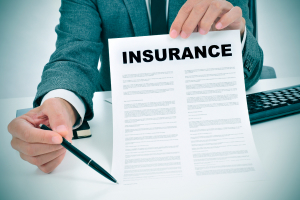
You will also need to inform your own insurance company about the accident. If you have collision coverage, your insurer may help pay for repairs to your vehicle. If you do not have collision coverage, you may still be able to get compensation from the trucking company's insurance policy.
Once you have gathered all the evidence and spoken to an attorney, you are now ready to file a personal injury claim. This claim will detail the injuries you sustained in the accident and request compensation for your medical bills, lost wages, and pain and suffering.
The trucking company's insurance adjuster will review your claim and may offer you a settlement. If you accept the settlement, you will be waiving your right to file a lawsuit. Your case will likely go to trial if you do not accept the payment.
The claims process within the trucking industry can be complex, but an experienced truck accident attorney can help you navigate it and get the compensation you deserve.

Anyone following the news might know that there has been a spate of fatal truck accidents in recent years. These accidents have occurred for various reasons, including driver fatigue, equipment failure, and bad weather.
Regardless of the cause, it is essential to determine who is liable for the damages after an accident. It can be complicated in truck accidents, as there may be multiple parties who could be held responsible.
If you have been involved in a truck accident, contacting an experienced truck accident lawyer is vital to help you investigate the accident and determine who is liable.
Many factors must be considered when determining liability in a commercial truck accident. Some of these include:
These are just a few questions that need to be answered to determine who is liable in a truck accident. Consulting with truck accident lawyers can help you investigate the accident and gather the evidence you need to build a strong case.

If you were involved in an accident with a commercial truck, the truck driver's employer might be liable. This is especially true if the accident was caused by the truck driver's traffic violation or negligence. For example, if the truck driver was speeding or driving recklessly, the truck driver's employer may be held responsible for any damages that resulted from the accident.
In some cases, the truck driver may be an independent contractor, meaning the truck driver is not an employee of the trucking company. If the accident was due to the truck driver's negligence, the company that owns the truck might still be held liable for any damages that resulted from the accident.

Suppose a truck driver was speeding at the time of the accident. He might be held liable for any damages resulting from the accident. Speeding is a significant factor in many accidents involving trucks. In fact, according to the National Highway Traffic Safety Administration (NHTSA), more than 22% of all large-truck drivers involved in fatal crashes had at least one prior speeding conviction in 2016.
If the truck driver gets into an accident due to alcohol or drugs, the truck driver may be held liable for any damages that resulted from the accident. A BAC level of .04 percent or higher qualifies as drunk driving in commercial vehicle drivers. If the truck driver's BAC level is .08 percent or higher, the truck driver may get charged with a DUI. The truck driver can then be held liable if they fail drug and alcohol testing right after the accident.
If the truck driver gets into an accident because they made an illegal lane change or turn, the truck driver or their employer may be held liable for any damages that resulted from the accident. It is especially true if the truck driver was not appropriately trained to make lane changes or turns.
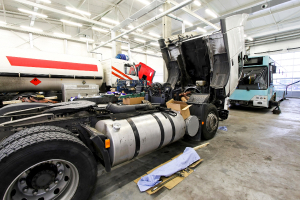
The court will first determine whether the trucking company or the driver was at fault for the accident. If the plaintiff can prove that the company was negligent in hiring the driver, or if they did not properly train the driver, they may be held liable. Additionally, if the company did not ensure that the driver was following hours of service regulations, or if they knowingly let the driver operate the vehicle while fatigued, they may also be held responsible. Other ways of establishing the trucking company's responsibility in an accident are discussed below.
The Federal Motor Carrier Safety Administration (FMCSA) has hours of service regulations established to prevent truck drivers from driving for too long without a break. These regulations state that a driver can only drive for 11 hours within 14 hours and must take a 10-hour break. The trucking company may be held liable if a driver violates these rules and gets into an accident.
All trucking companies must follow particular hiring standards when bringing on new drivers. These standards include drug and alcohol testing as well as a background check. If a company does not follow these standards and hires a driver who then gets into an accident, the company may be held liable.
Trucking companies are responsible for ensuring that their vehicles are properly maintained. This includes regularly inspecting and repairing the truck's brakes, tires, and other essential parts. If a company does not properly maintain its trucks and an accident occurs; as a result, it may be held liable.
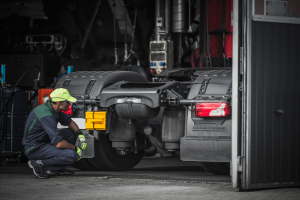
In some personal injury cases, appointing the damage liability is a relatively straightforward process. For example, if you are in a car accident and suffer a broken bone, it is not difficult to estimate the cost of your medical treatment and lost wages. However, the potential damages can be much more significant when a truck driver gets in an accident.
These are damages with specific monetary value, such as medical bills, lost wages, and property damage.
These are damages that do not have a specific monetary value, such as pain and suffering, emotional distress, and loss of enjoyment of life.

If you or someone you love has been involved in a truck accident, you must contact an attorney as soon as possible. The truck driver will likely have an insurance company representing them and their interests. You need someone on your side who is looking out for your best interests.
Truck driving accidents can be severe, resulting in catastrophic injuries or even death. If you or a loved one have been involved in a trucking accident, don't wait to call for expert legal assistance.